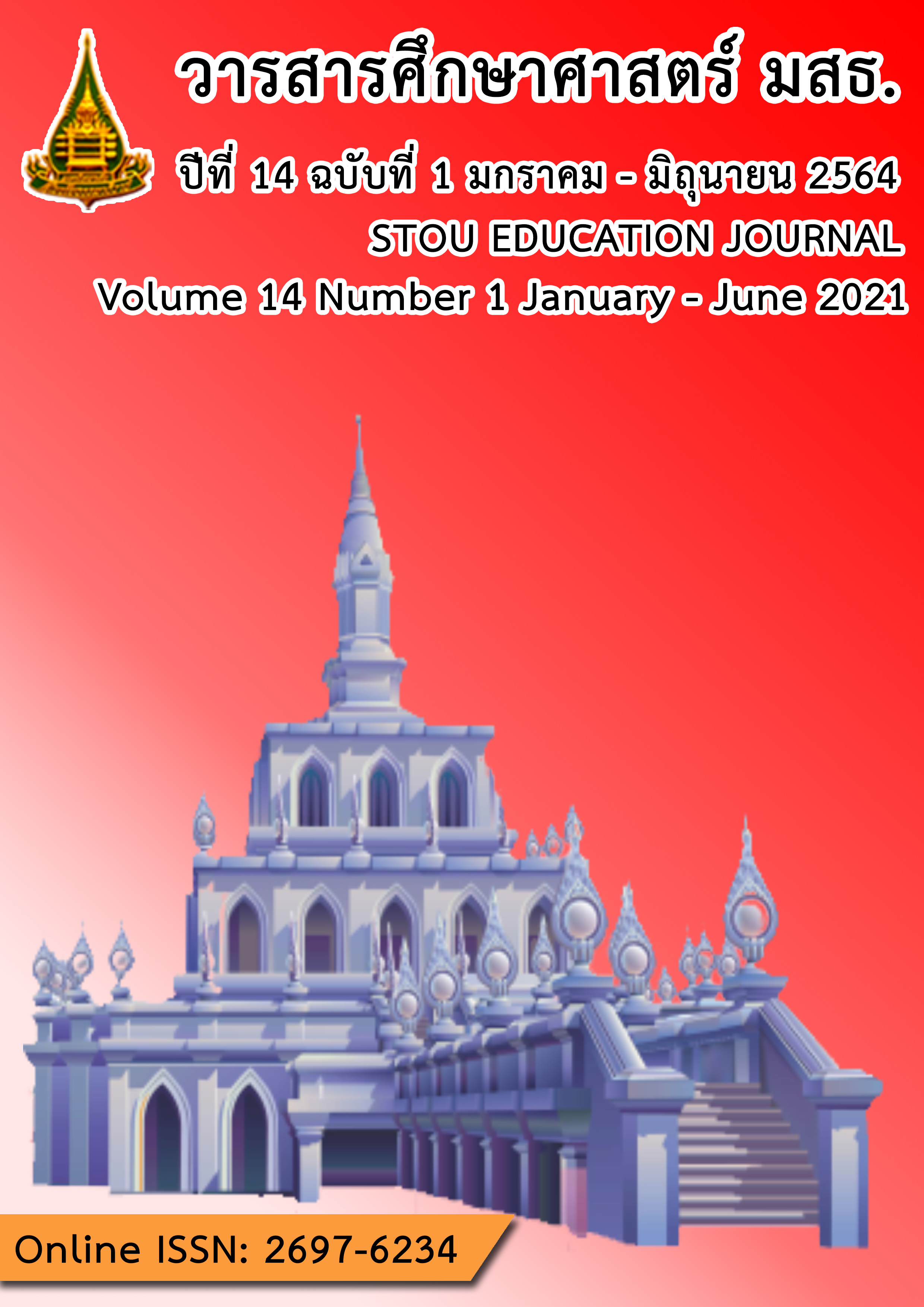Effects of Mentoring Model for Enhancing Competency in Teaching and Classroom Action Research for General Science Student Teachers
Main Article Content
Abstract
The purpose of this research was to study the effects of mentoring model for enhancing competency in teaching and classroom action research of general science student teachers. The research sample consisted of 10 student teachers at a secondary school in Phetchabun province. The instruments used in this research comprised 2 types: The first type was the treatment instrument, which was a manual for using the mentoring model for enhancing competency in teaching and classroom action research of general science student teachers. It had four main principles: preparation, planning, provision of care and consulting, and evaluation. The second type was the data collecting instrument, which consisted of the following: (1) a form to assess teaching competency; (2) a form to assess classroom action research competency; (3) a form for participatory classroom observation; and (4) a semi-structured interview form. The researcher analyzed quantitative data with descriptive statistics of percentage, and mean; and analyzed qualitative data with content analysis method and triangulation technique. The research findings showed that after being mentored by using the mentoring model, all 10 student teachers had increased their teaching competency and action research competency from the moderate level to the high level. As such, the provision of advices and consulting to each individual student closely and regularly proved to be an important process in really motivating their learning towards practice.
Article Details
References
ลำพอง กลมกูล. (2554). อิทธิพลของกระบวนการสะท้อนคิดต่อประสิทธิผลการวิจัยปฏิบัติการในชั้นเรียน: การวิจัยแบบผสมวิธี. (วิทยานิพนธ์การศึกษาดุษฎีบัณฑิต ไม่ได้ตีพิมพ์). จุฬาลงกรณ์มหาวิทยาลัย, กรุงเทพฯ.
วนินทร สุภาพ. (2561). ผังมโนทัศน์: เครื่องมือสําคัญสําหรับการจัดการศึกษาคณิตศาสตร์ในศตวรรษที่ 21. วารสารวิชาการเครือข่ายบัณฑิตศึกษามหาวิทยาลัยราชภัฏภาคเหนือ, 8(14), 1-14.
สุธาสินี บุญญาพิทักษ์. (2554). การพัฒนาหลักสูตรครูนักวิจัยในชั้นเรียน สำหรับนักศึกษาวิชาชีพครู.(วิทยานิพนธ์การศึกษาดุษฎีบัณฑิต ไม่ได้ตีพิมพ์). มหาวิทยาลัยศรีนครินทรวิโรฒ, กรุงเทพฯ.
Berry, A., Loughran, J., & van Driel., J.H. (2008). Revisiting the roots of pedagogical content
knowledge. International Journal of Science Education, 30(10), 1271-1280.
Costa, A., & Garmston, R. (2002). Cognitive coaching: A foundation for renaissance schools. The United States of America: Christopher-gordon publishers.
Guyton, E., and McIntyre, D. J. (1990). Student teaching and school experiences. New York: Handbook of research on teacher education.
Knowles, M. S. (1980). The modern practice of adult education: From pedagogy to andragogy. NJ: Cambridge adult education.
Marlene, P. & Mchenry, M. (2002). The mentor’s handbook: Practical suggestions for collaborative reflection and analysis. Norwood: Christopher-gordon publishers.
Roger. P., & Barrie. J. (2007). Mentoring-coaching: A guide for education professionals: A handbook for education professionals. UK: Mcgraw-hill education.
Shulman, L. S. (1986). Those who understand: Knowledge growth in teaching. Educational Researcher, 15(2), 4-14.
Sparks, D. (1990). Cognitive coaching: An interview with robert garmston. National Staff Development Council Journal, 11(2), 12-15.


